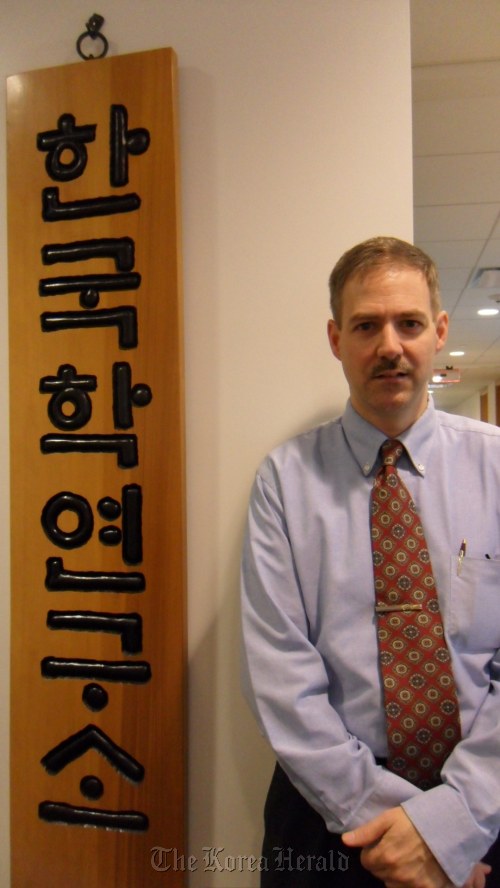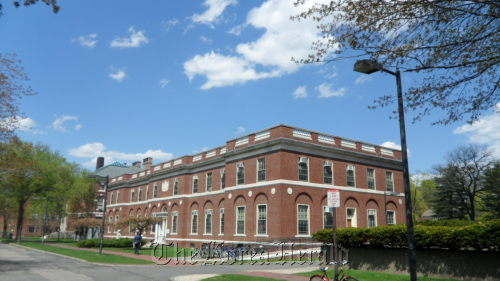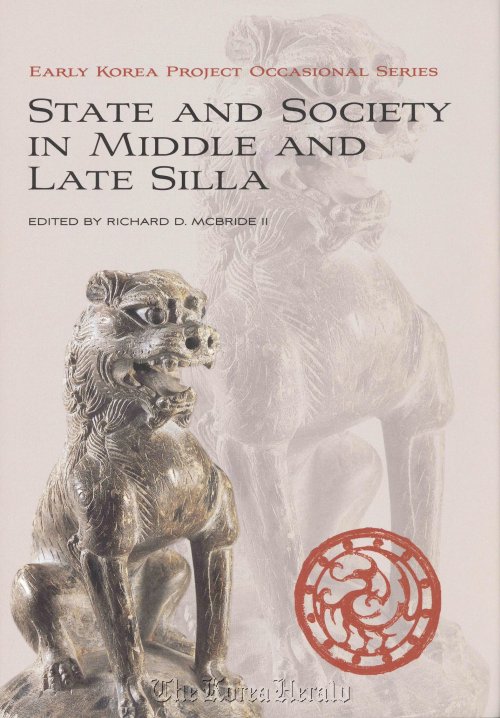BOSTON ― Most Korean people must have memories from their school days of trying to memorize important dates and names from Korean history for exams.
They may feel that learning about Korean history, especially early history, might be more boring than any other study.
In Boston, however, the Korea Institute of Harvard University’s approach to helping students learn about early Korea can be current, vibrant and relevant, said Mark Byington, director of the Early Korea Project.
The project is one of the major programs at Harvard University aimed at studying Korean history prior to the 10th century.
They may feel that learning about Korean history, especially early history, might be more boring than any other study.
In Boston, however, the Korea Institute of Harvard University’s approach to helping students learn about early Korea can be current, vibrant and relevant, said Mark Byington, director of the Early Korea Project.
The project is one of the major programs at Harvard University aimed at studying Korean history prior to the 10th century.


The Early Korea Project was established in November 2006 under the direction of Byington with support from the Academy of Korean Studies and the Korea Foundation.
“Too often, when people have to learn about early Korea in Korea, they feel bored, saying ‘that’s so long ago. You can’t get more boring than that,’” said Byington at his office at the Center for Government and International Studies where the Korea Institute is located.
“But we take a different approach. We try to focus on controversies and issues of dispute where you have many different ways of looking at a particular problem in early history or archeology,” he said.
Recently, Korean historical TV drama “Jumong,” depicting the life of founder of Goguryeo Kingdom, gained international popularity and was aired in more than 20 countries.
However, the drama reportedly contained some distorted facts about Goguryeo history and it is becoming a problem, according to Byington.
“That’s not their intention but people learn more from historical dramas than they do from the textbooks today ... Relevance of studying Early Korea becomes very clear when we see that people care about this,” he said.
“We’re learning how earliest Korean states were formed and early relationships with other states ― be that Chinese or Japanese ― and people are always interested in the Goguryeo dispute,” he said.
The 47-year-old scholar shared the story of how his career path changed from computer science engineer to Korean history scholar.
Born in 1963 in Georgia, Byington joined the Air Force in high school and traveled around some parts of the world. He first visited Korea in 1983 and after that he stayed a couple of years in Korea, which changed his career course 180 degrees a decade later.
After four years in the Air Force, he specialized in computer science from 1986 to 1990 but minored in Asian studies because of his experience in Korea. After graduation, he worked for IBM for several years.
However, in his spare time, he studied Korean history and taught himself the Korean language.
During the last four years before quitting as an engineer, he spent his spare time translating “Samguksagi,” a historical record of the Three Kingdoms of Korea, into English, although no one was paying him to do so.
At that time, he could not find any reliable material on Goguryeo. So, he went to China to study the kingdom and found it “eye-opening” that the Chinese saw Goguryeo in a different way to the Koreans, he said.
In 1994, he abandoned his career as an engineer and went to Harvard even though no one was teaching early Korean history there yet.
“I was accepted and I immediately gave up my career and I’ve never regretted that,” he said.
Why does he like it so much? Byington could not give a clear answer but shared a special memory of spending his summers during college traveling in Korea without an itinerary.
He would go from one town to the next, visiting historical sites and talking with the locals. He would stop at a field where farmers were resting and eating strawberries with makgeolli after harvest.
“Although people did not know who I was or where I was from, they would welcome me and it was a very touching experience,” he said.
One day, he was on his way from Daegu to Gyeongju. And a taxi driver in Daegu, who picked him up from a bus terminal and drove him to a hotel, suggested he take Byington to Gyeongju next day without asking any pay, saying “tomorrow is my day off,” in pure hospitality.
When the driver took him to Gyeongju, Byington explained all he knew about history of Gyeongju to the Korean man in Korean.
Refusing to be treated for dinner, the driver said he learned a lot and just drove off.
Now, his mission is to bring studies of early Korea into the English language in a very systematic way and encourage people to go beyond it, he said.
The biggest achievement of the Early Korea Project is Harvard University Korea Institute’s publication of a series of books on states in the early history of Korea.

The latest book “State and Society in Middle and Late Silla,” based on two-part workshop series at the University of Hawaii in June 2009, and at Harvard in August 2009, looks at some fundamental questions about the nature of the Silla state and its society from a broad perspective.
“With this book, people who are interested in early Korea don’t have to suffer, like I did. Even if they don’t focus on Korea, they can use this book for their research,” Byington said.
The Korea Foundation recently renewed its three-year financial support for the Early Korea Project which will be guaranteed until 2013 but the Korea Institute wants to perpetuate it, he said.
“Korean studies have been lagging behind for so long but they are picking up now, largely because of Korea’s efforts and natural progress in globalization.”
By Kim Yoon-mi, Korea Herald correspondent
(yoonmi@heraldcorp.com)







![[KH Explains] How should Korea adjust its trade defenses against Chinese EVs?](http://res.heraldm.com/phpwas/restmb_idxmake.php?idx=644&simg=/content/image/2024/04/15/20240415050562_0.jpg&u=20240415144419)










![[Today’s K-pop] Stray Kids to return soon: report](http://res.heraldm.com/phpwas/restmb_idxmake.php?idx=642&simg=/content/image/2024/04/16/20240416050713_0.jpg&u=)